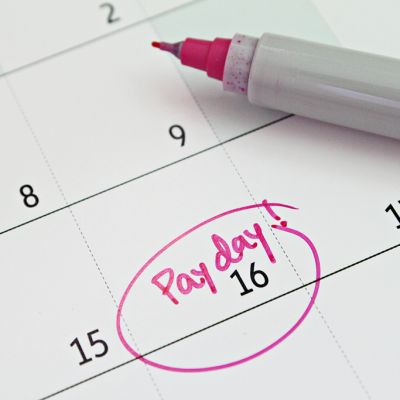What are the long-term impacts of pausing your mortgage repayments?

The major banks are offering people who are struggling financially the chance to press pause on their mortgage.
This is in recognition of how tough some people are doing it as a result of the economic shutdown and widespread job losses due to the coronavirus pandemic.
Each bank has its own policy, but the general rule is you can press pause if you have lost your job or your total income has dropped by 20 per cent.
Some banks are happy for you to phone them and let them know your circumstances have changed. Others will need to see a letter or email that proves you have lost your job or your pay has taken a hit since January, 2020.
Pausing your mortgage has consequences
Lenders aren’t going to simply forget about you making repayments for a few months.
“The bank won’t let you off scot-free,” says Alex Jamieson, financial planner and founder of AJ Financial Planning.
The interest you accrue while you’re not making payments will still be added to your loan balance each month.
Let’s say you have a $350,000 mortgage and normally pay $729 in interest each month. This amount will still be added to your loan each month it’s paused, which is called capitalising the interest on your loan.
“Your minimum repayment after the repayment pause will be higher,” says Brendan Dixon, a financial adviser with Pure Finance.
“You pay more interest in the long term if you do take a repayment holiday,” he adds. “So only do this if it’s absolutely necessary.”
Asking for a mortgage holiday could be the best path to follow if it means the difference between keeping your property or having to sell when it doesn’t suit you.
How repayment holidays work
At the moment banks will let you press pause for the next three months. Some will also waive late payment fees.
“Some lenders are offering reviews after three months,” says uno Home Loans chief executive Anthony Justice. “They will then determine if a further three-month holiday is the right thing to do, but this differs from lender to lender.”
It’s also important to understand that each bank’s pause mechanics vary, as does the eligibility criteria. “Some banks restrict assistance to owner-occupiers while others also have provisions for investment property loans,” says UQ Business School lecturer Dr John Sturgeon.
Pressing pause is also not the only option if you’re struggling to pay your mortgage, notes Sturgeon.
“You could also reduce your payments for a period to help you through tough times rather than pausing the full loan repayment.”
“You could also access funds in your redraw facility if you’re ahead on your payments,” he adds. “Switching to interest-only payments for a period of time to reduce financial stress could also be an option.”
What to do if you’re facing financial hardship
Each bank has a dedicated financial hardship department. So as a first step, go to the financial hardship section on your lender’s website and fill in the online form on this page.
“Processing time at the moment is up to three weeks,” says Dixon. “So send in your application as soon as possible.”
Avoid making a hardship application if your situation hasn’t changed. Banks are doing all they can to help people with genuine needs, so if you don’t need help, leave your lender’s resources free for people who genuinely need them.
It’s also important to understand you won’t automatically be offered the chance to press pause on your home loan.
“Offering a pause is at the lender’s discretion,” says Sturgeon. “Banks are businesses and they need weigh up the risk of offering a pause to customers who are not in a position to sustain a loan long term.”
You will get short-term relief if your bank approves you to pause your mortgage. But if your situation doesn’t change, you do need to have a financial plan beyond six months. This is because there’s currently no talk of extending this period of leniency beyond that time.
Make sure to keep your bank fully informed of your financial position if you are struggling with your repayments and ask about any assistance that’s available.
You may be surprised at how open the banks are to negotiation after the drubbing they received during the financial services royal commission for failing to respond appropriately to customers in financial dire straits.
We recommend
We thought you might like
States
Capital Cities
Capital Cities - Rentals
Popular Areas
Allhomes
More










